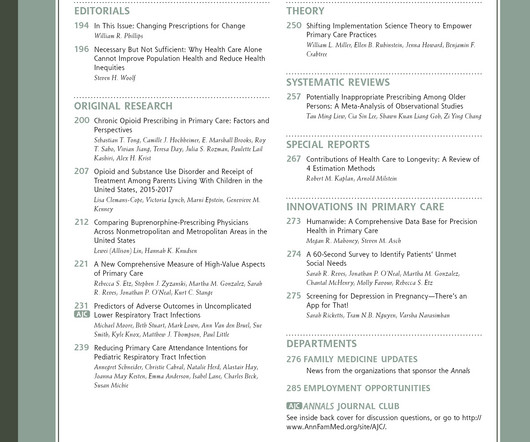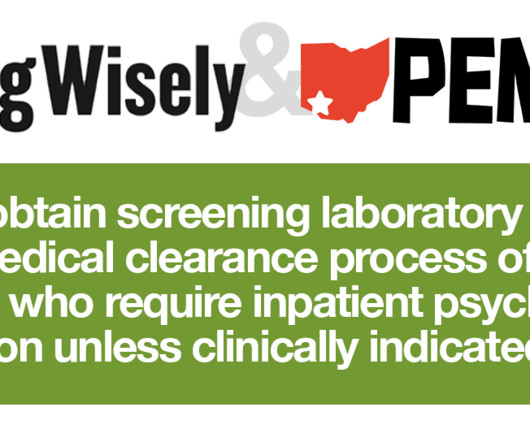Outcomes of Guidelines from Health Technology Assessment Organizations: A Systematic Mixed Studies Review [Systematic review, meta-analysis, or scoping review]
Annals of Family Medicine
NOVEMBER 20, 2024
Context: Health Technology Assessment (HTA) organizations determine the value of health technologies such as medical devices, lab tests, or medications. The full-text screening started with 345 studies and resulted in 120 included observational studies (21 qualitative, 94 quantitative, and 5 mixed methods).













Let's personalize your content